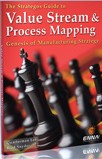The Power of Teams
Lean Manufacturing and Lean Operations place different demands on people and organizational
structures. It requires more varied task skills, more flexibility in work assignments and deeper
knowledge of processes and quality. More conventional, bureaucratic and functionally oriented
organizations do not fit with lean. Failure to change culture and organization is the most
common reason that Lean efforts fall short.
Trained and mature teams typically make better decisions. They solve problems better. They
motivate people for superior performance and they can coordinate tasks better than a collection
of individuals.
Problem-Solving
Problems in an organization are often complex and difficult. Root causes are hidden.
Solutions are elusive and often ineffective. How many times have you dealt with a problem that
crops up again and again? How many times have you dealt with a problem that was supposedly
resolved?
Trained, diverse, and mature work teams address problems better than individuals or other
groups. From training and experience they dig deep for the root causes. Diversity brings
logical, emotional, and intuitive intelligences to bear on an issue. Solutions are often simple,
elegant, and effective. Competent work teams make better decisions for the same reasons.
Motivation
Motivation is superior with teams, especially Self Directed Work Teams. Think of your
feelings while on a winning sports team to appreciate this power. Teams appeal to the higher
motivators. They satisfy cravings for social interaction, esteem, and self-actualization.
Coordination
Excellent coordination is also evident in work teams. This is especially important where
multiple, sequential tasks take place. The sports analogy applies here as well.
|
The Downside
This performance comes at a price: decisions are slow, work teams require extensive training
and months to mature. However, the benefits far outweigh the difficulties and frustrations.
The power and effectiveness of work teams can be a strategic advantage in business. However,
they are not for management that is impatient, arrogant or unwilling to invest time, attention,
and training. In the articles below we explore the conditions success.
Types of Teams
 Problem-Solving and Self Directed Work Teams are the most common types. Problem-Solving and Self Directed Work Teams are the most common types.
Problem-solving teams have members from different parts of an organization. The purpose is to
solve a problem and disband at task completion. They usually employ a leader or facilitator.
Work Teams are ongoing. Their mission is to manage and coordinate daily work. They draw
members from the same department or area. Ideally, they perform a series of sequential tasks
that result in a finished product. Work teams may switch to the problem-solving mode to deal
with an impediment.
Work teams may have any of several leadership arrangements. Some have appointed leaders;
others have no formal leader. Intermediate arrangements such as elected leaders or facilitators
are also effective.
|





